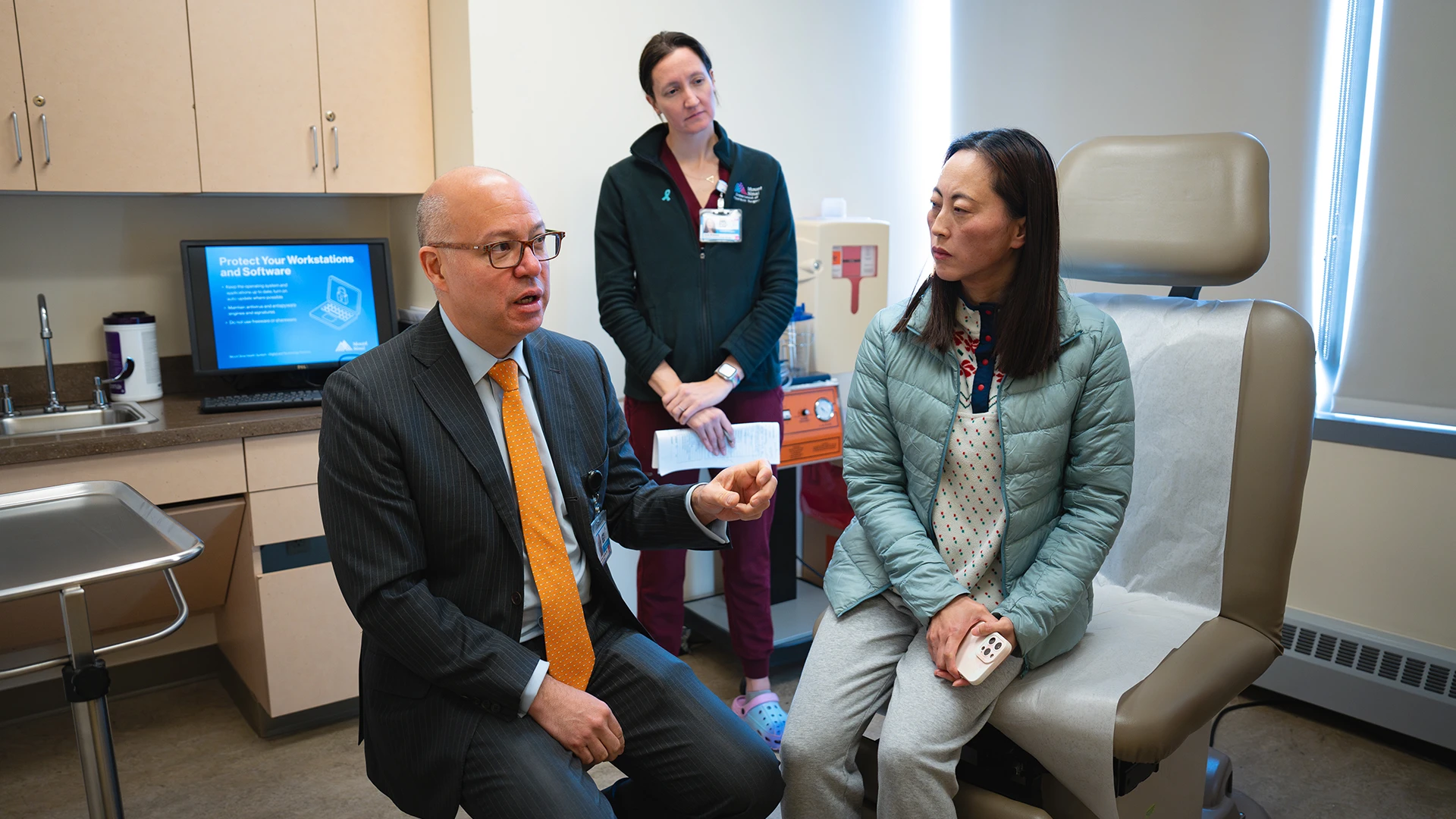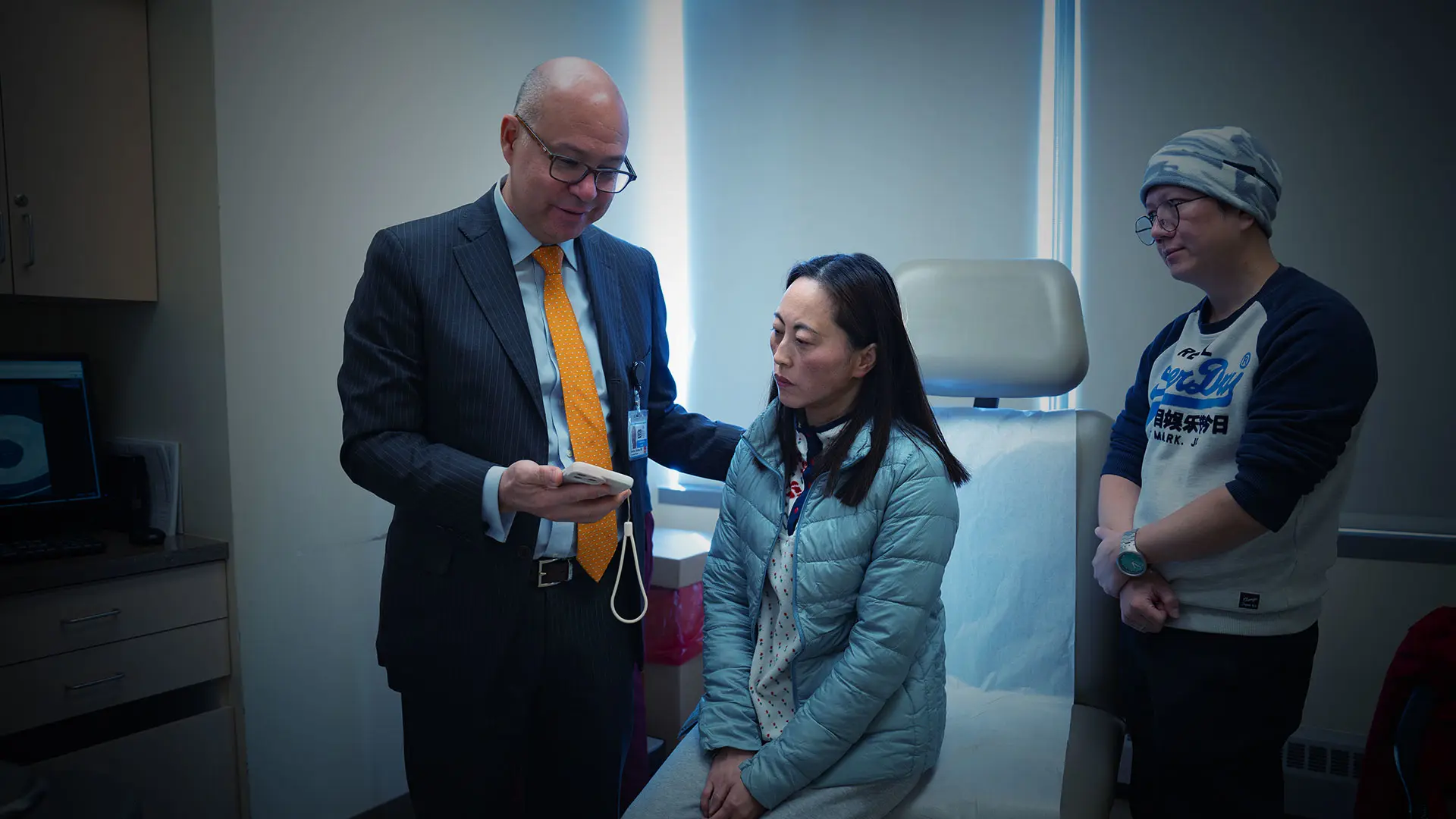A conviction that New York City’s sizable Chinese American community lacked adequate access to quality health care led the Mount Sinai Health System to launch an Asian Thoracic Surgery Program in 2011. Nearly 15 years later, the initiative has an urgent new mission under the leadership of thoracic surgeon Andrew Kaufman, MD: diagnosing, treating, and investigating a phenomenon known as never-smoking lung cancer, which disproportionately affects Asian women.
People with Asian ethnic backgrounds in this country are known to have a higher rate of smoking compared to the general population and, therefore, greater susceptibility to lung cancer. But from the growing numbers of patients he was seeing at his clinic in Manhattan’s Chinatown, Dr. Kaufman, Associate Professor of Thoracic Surgery at the Icahn School of Medicine at Mount Sinai, noticed another disturbing trend: a large number of patients diagnosed with lung cancer were women with no history of smoking. His observation became deeply personal when two members of his own immediate family died of never-smoking lung cancer.
“Unfortunately, the problem is occurring in a population that represents one of the poorest demographics in the city, and, because these individuals never smoked, they are typically ineligible for routine lung cancer screening,” says Dr. Kaufman, who is half-Chinese and fluent in Mandarin and Cantonese along with his native English. “We’re now addressing never-smoking lung cancer as a full-fledged part of the Asian Thoracic Surgery Program, and hope that from our work will emerge a better clinical understanding of why this condition occurs, and how to effectively respond to it.”
That challenge is being met by the program at several levels, though none will be more important than comprehensive patient screening and research. Dr. Kaufman is leading the drive to secure funding for a lung cancer screening protocol and a translational research component to understand the basic molecular science behind never-smoking lung cancer. Some scientists have speculated it can be traced to secondhand smoke, radon, particulate pollution, and even cooking techniques.
Add to that list genetics: Before joining Mount Sinai 12 years ago, Dr. Kaufman was part of a Memorial Sloan Kettering Cancer Center research team that linked nonsmoking lung cancer to a gene, EGFR, that normally helps regulate the growth and division of cells. “We learned this gene mutation was occurring much more frequently in Asian women never-smokers and that it was somatic, meaning it wasn’t passed down from family members, but was spontaneous,” he explains.
Given that pathogenesis, Dr. Kaufman is now mapping out a lung cancer screening program similar to Mount Sinai’s highly acclaimed effort around tobacco smokers. Like that program, it would gather extensive demographic information from patients, including age, ethnicity, history of lung cancer in the family, and exposure to secondhand smoke. This analysis could qualify the individual for a CT scan and serum specimens, progressing to a biopsy and additional testing and treatment if a suspicious lesion is confirmed. Plans call for building out the screening program to include not just Asians but people of other ethnicities, particularly Latinos, who Mount Sinai research has shown also exhibit an inordinately high rate of never-smoking lung cancer.

Dr. Kaufman, left, and Janey Belack, PA-C, offer screening and treatment to address the high rate of never-smoking lung cancer in Asian women.
Dr. Kaufman points to the need on a much broader scale for the government sector to aggressively address lung cancer among those who have never smoked as a serious health issue, one requiring immediate attention.
“Our national databases don’t even reflect how many nonsmokers with lung cancer exist,” he points out. “Based on our work, we believe that in another 20 years, that population will almost equal the number of people with lung cancer caused by smoking. That means we need to plan ahead now as a nation and as individual health providers to avoid being overwhelmed by this new wave of nonsmoking lung cancer.”
In the meantime, Dr. Kaufman is confident the Chinese American community is better equipped than ever to confront health issues such as never-smoking lung cancer, thanks to the strong roots Mount Sinai and its Asian Thoracic Surgery Program have planted in its backyard. Indeed, Mount Sinai maintains a multidisciplinary clinic at 168 Centre Street, in the heart of Manhattan’s Chinatown, staffed by multilingual and culturally savvy physicians who offer both emotional support and quality medical care.
“The greatest thing about the work we’re doing there,” declares Dr. Kaufman, “is that it provides an entry point for people who are often marginalized to meet with skilled providers who have their best interests in mind.”
